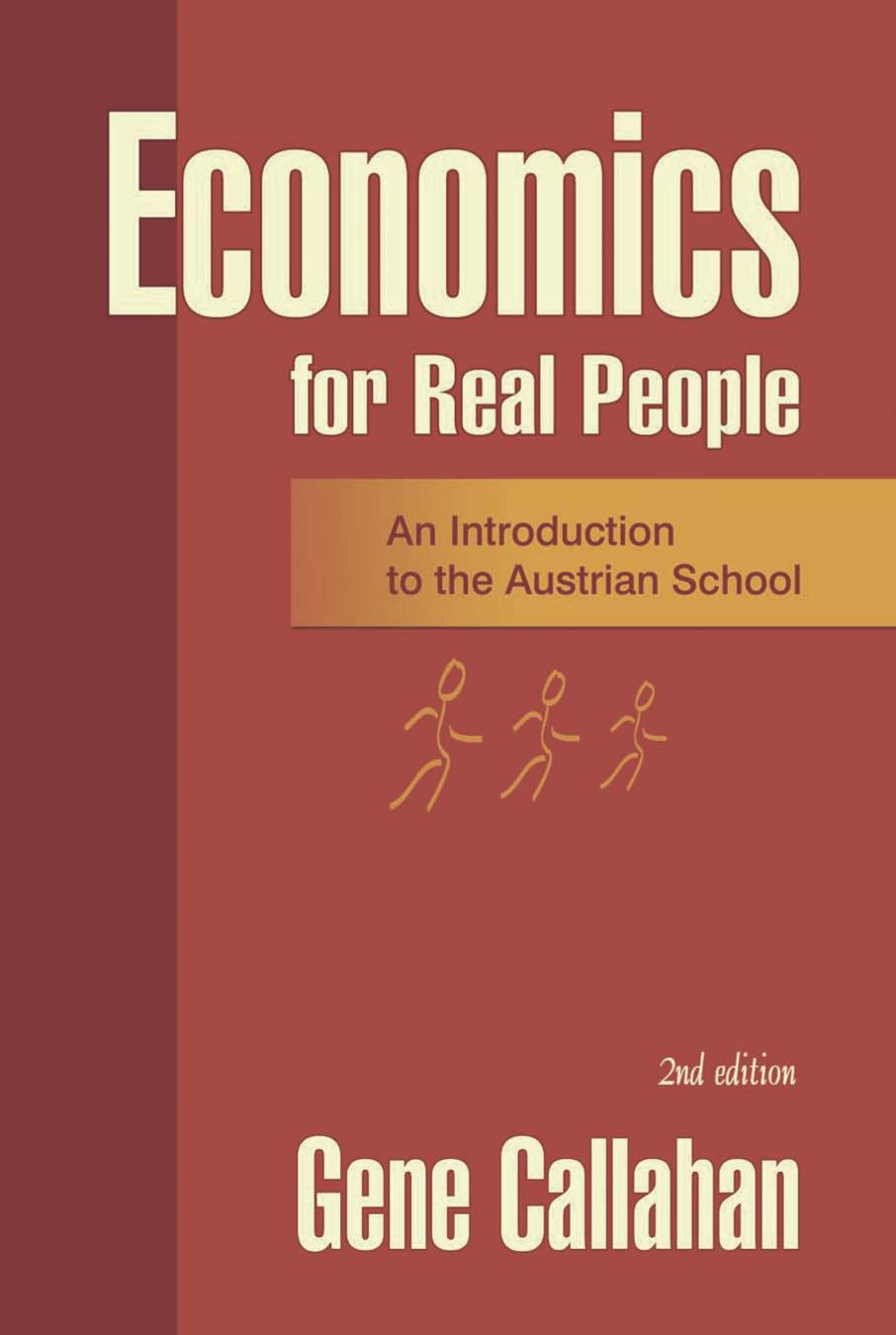Economics for Real People by Gene Callahan

Author:Gene Callahan [Gene Callahan]
Language: eng
Format: epub, pdf
ISBN: 978-0-94546-641-3
Publisher: Ludwig von Mises Institute
Published: 2004-11-06T16:00:00+00:00
THE PROBLEMS WITH EFFICIENCY
IN THE NEXT several chapters we will look at some specific government interventions into the market. Before we leave this chapter, however, I’d like to examine a technique by which interventionism is often justified: the appeal to efficiency. The basis of the technique is the employment of equilibrium analysis to demonstrate that the free market has produced an “inefficient” outcome, and to recommend some government intervention that will rectify the situation, leading to increased “social utility.” A leading proponent of such analysis, Judge Richard Posner, has “described the common law as a tool to maximize aggregate social wealth.” (I’m quoting Steve Kurtz, interviewing Posner in the April 2001 issue of Reason.)
Steven Landsburg, in Price Theory, gives an example of the use of the efficiency criterion for resolving legal disputes among individuals. A group of ten students would like to burn down their professor’s house, while the professor is not in favor of the idea. Landsburg explains how to use the efficiency criterion to settle this dispute:
According to the efficiency criterion, everyone is permitted to cast a number of votes proportional to his stake in the outcome, where your stake in the outcome is measured by how much you’d be willing to pay to get your way. So, for example, if ten students each think it would be worth $10 to watch the professor’s house go up in flames, while the professor thinks it would be worth $1,000 to prevent that outcome, then each of the student’s gets ten votes and the professor gets 1,000 votes. The house burning is defeated by a vote of 1,000 to 100. (Landsburg, Price Theory)
Some of the problems with this approach should be obvious. First of all, what if it is just the professor’s tool shed the students want to burn? Perhaps they really love to watch fires, and would be willing to pay $100 each to watch the shed burn. Meanwhile, the shed is only worth $500 to the good professor. It’s “efficient” for the students to go ahead and burn down the shed, even if they never have to pay the professor. One thousand dollars of utility has been gained at the expense of a loss of only $500 of utility. Let’s momentarily set aside any moral compunctions we might have about allowing people to destroy or abscond with others’ property because they enjoy that more than the owner suffers from the loss. Even on its own terms, such efficiency analysis is a failure, because it doesn’t take into account the loss of “efficiency” in society when people don’t feel that their property is secure. Of course, the magnitude of such a loss is incalculable, because different social arrangements do not appear as goods for sale on the market.
Just because we can’t calculate such a figure doesn’t mean that secure property rights have no value—we might suspect, in fact, that their value is enormous. Several authors have recently written books stressing the importance of property rights for prosperity, including Tom
Download
This site does not store any files on its server. We only index and link to content provided by other sites. Please contact the content providers to delete copyright contents if any and email us, we'll remove relevant links or contents immediately.
The Secret History by Donna Tartt(19088)
The Social Justice Warrior Handbook by Lisa De Pasquale(12190)
Thirteen Reasons Why by Jay Asher(8909)
This Is How You Lose Her by Junot Diaz(6886)
Weapons of Math Destruction by Cathy O'Neil(6279)
Zero to One by Peter Thiel(5802)
Beartown by Fredrik Backman(5754)
The Myth of the Strong Leader by Archie Brown(5507)
The Fire Next Time by James Baldwin(5444)
How Democracies Die by Steven Levitsky & Daniel Ziblatt(5218)
Promise Me, Dad by Joe Biden(5153)
Stone's Rules by Roger Stone(5088)
A Higher Loyalty: Truth, Lies, and Leadership by James Comey(4963)
100 Deadly Skills by Clint Emerson(4925)
Rise and Kill First by Ronen Bergman(4788)
Secrecy World by Jake Bernstein(4753)
The David Icke Guide to the Global Conspiracy (and how to end it) by David Icke(4718)
The Farm by Tom Rob Smith(4509)
The Doomsday Machine by Daniel Ellsberg(4490)
